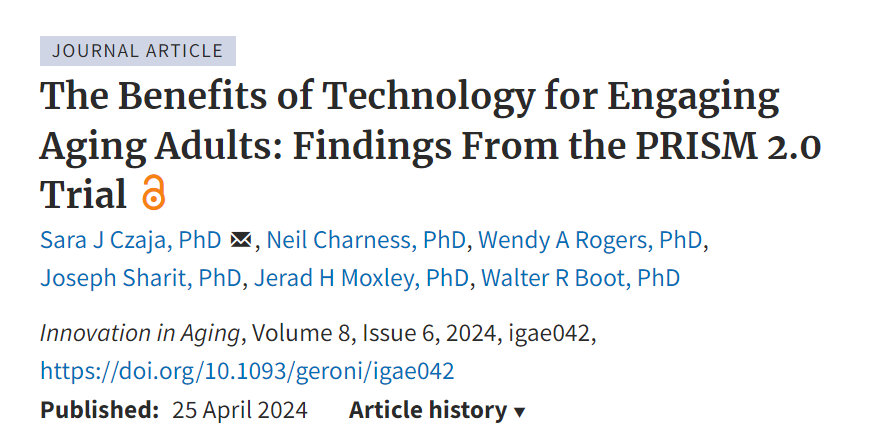Social isolation and loneliness are significant public health concerns, particularly among older adults. These feelings of isolation can stem from various sources, such as reduced mobility, health challenges, financial changes, or the loss of close companions. Our recently published study entitled “The Benefits of Technology for Engaging Aging Adults: Findings from the PRISM 2.0 Trial” explored how technology can play a pivotal role in addressing these challenges.
The trial involved 245 participants aged between 64 to 99, residing in diverse living environments. We compared two groups: one using the PRISM 2.0 software, designed to boost social engagement, and a control group using standard tablets but with similar training and contact. Participants across both groups experienced notable improvements in feelings of social support and quality of life. They reported reduced feelings of loneliness and social isolation. Moreover, they also experienced an increase in proficiency and comfort using mobile devices.
Our study builds on previous research underscoring the consistent benefits of integrating technology into the daily lives of older adults. Not only does technology help reduce feelings of isolation, but it also enhances the overall quality of life by fostering connections and increasing digital literacy.
Please visit Weill Cornell Medicine website to see their announcement of this news. The published article is available online: please view this webpage.
